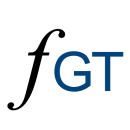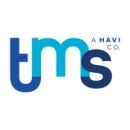When it comes to leadership, women are often in a catch-22. Teams led by women tend to excel, but reaching a position in leadership is a much harder climb.
The numbers don’t lie. Men are twice as likely as women of color to be promoted to management positions, and the feedback women receive during performance reviews is more likely to be based on their personality compared to men.
But once they are in leadership roles, women outperform men almost every time.
That’s why Built In spoke with six women in tech to hear about their leadership journeys and their strategies for success.
GoHealth is a Medicare marketplace platform that helps people understand what plans are right for them.
Describe your career journey so far. What skills or experiences have you acquired along the way that have helped you get to where you are now?
I started my career in management consulting and have moved through strategy, innovation, business intelligence and product roles. All of my past roles came together when I was chief of staff to the CEO at GoHealth and serve me well now as senior vice president of product where I have the opportunity to lead product managers, program managers, designers and machine learning engineers. The biggest skills I’ve gathered along the way are becoming comfortable navigating ambiguity, the ability to learn whatever I need to drive an outcome and learning to effectively leverage the strengths of people around me.
I’ve also learned that while hard skills matter, the people and influence part of leadership really matters and so does emotional centeredness. You can’t be a very effective leader if you aren’t emotionally centered and taking good care of yourself.
What support did you receive from individuals or resources that helped you step into a leadership role?
I’ve been blessed to have individuals around me who always encourage me to reach for more and remind me of my strengths. The best advice I’ve gotten is “always walk through open doors,” and that has taken me into roles and opportunities that I never could have dreamed of on my own.
From a resource perspective, I value books, newsletters and articles that have been suggested by peers, coaches and mentors. I’ve found that a lot of people ask for advice, get great books and articles to read and then don’t bother to read them. There’s such a wealth of knowledge that people can find if they read.
Books: A few that I’ve been recommended over the years and now recommend even if they’re old include: “How Finance Works” by Mihir Desai, “The Goal” by Eliyahu Goldratt, “The Making of a Manager” by Julie Zhuo, “Work Rules” by Lazlo Bock, “Data Science for Business” by Tom Fawcett, “Your Oxygen Mask First” by Kevin Lawrence.
Newsletters that I read every day are: various Axios newsletters, the WSJ Ten Point, Superhuman. There’s also a strong community of women leaders who produce valuable (free) content on Substack, LinkedIn and in books. I love reading Ami Vora, Deb Liu, Julie Zhuo and more.
How do you encourage other women on your team to become leaders themselves? Are there any stories you can share that showcase how you’ve done this?
Women on my teams have often told me great ideas in private one-on-ones but don’t bring them up in broader forums. I always encourage my whole team and especially the women, to bring up good ideas in group settings and take ownership for driving their ideas to resolution.
I also encourage my team and especially the women on the team to care about areas beyond their own domain.
I’ve included women on my teams in various meetings they didn’t have access to, so they get context straight from the source. I’ve seen them grow in their understanding and awareness of the strategic discussions going on and then develop better solutions.
I’ve also seen women who I’ve encouraged to speak up in meetings put themselves out there and become valued resources across the entire organization as people realize the strength of their contributions.
Fulcrum GT provides an innovative end-to-end digital business platform for the legal and professional services markets. Its true cloud SaaS solutions incorporate over 20,000 industry-specific features to connect the professional services ecosystem through a legal marketplace and business platform that commercializes and digitizes processes and the exchange of data, from source to pay.
Describe your career journey so far. What skills or experiences have you acquired along the way that have helped you get to where you are now?
My journey has been shaped by thoughtful choices, resilience and the constant effort to balance what matters most. I married young, with one condition — that I be allowed to continue my education. I pursued my MCA after marriage, learning early how to balance ambition with family as I became a mother of two during that journey. My first job brought an important decision: an MNC role in another city or a local opportunity that allowed me to stay close to home. I chose family and that decision deeply influenced my values as a professional and a leader. My first manager became a lifelong inspiration — his ability to resolve conflicts, motivate teams and lead with integrity left a lasting impression. He taught me to admit mistakes, set clear expectations and build processes that empower people to succeed. Those lessons became the foundation of my leadership style. Years later, after gaining global exposure in the United States, I joined my current organization — a decision that proved transformative. From team building to delivery, people and client management, I grew into the role of India head. Each crossroad reaffirmed that leadership grows from empathy, ongoing learning and conviction.
What support did you receive from individuals or resources that helped you step into a leadership role?
Stepping into leadership was not a single leap but a gradual journey, made possible by the trust and encouragement of the people around me. I was fortunate to have mentors and directors who recognized my potential and gave me opportunities to lead, even when I was still finding confidence in myself. Their belief became the foundation on which I built my own. They offered guidance during critical decisions, trusted me with client engagements and encouraged me to take bold calls, knowing that I would learn from both success and failure. Another pivotal influence was my learning experience at the Indian School of Business, where I completed the Post Graduate Programme in Management for Senior Executives. The program helped me refine my strategic thinking, decision-making and people leadership skills and gave me a broader perspective on leading with purpose. Combined with the mentorship I received at work, it shaped the leader I am today — grounded, empathetic and committed to empowering others to grow and succeed.
How do you encourage other women on your team to become leaders themselves? Are there any stories you can share that showcase how you’ve done this?
Leadership doesn’t emerge from authority, it flourishes when people are trusted, encouraged and given space to discover their own strengths. I encourage every woman on my team to take ownership of her work and decisions, while knowing she has a safe space to express concerns and seek guidance. We’ve built a culture that values teamwork over individual credit, where collective success is celebrated and mistakes are treated as opportunities to learn, not reasons for blame. Regular feedback and open dialogue help course-correct early and build confidence. I actively sponsor programs for skill enhancement and personality development that benefit them beyond the workplace. Many have also gained exposure through onsite client engagements across countries, experiences that transform their perspective and leadership maturity. In a fast-evolving technology landscape, I remind my team that continuous learning and innovation are key to staying relevant. Watching women grow from hesitant contributors to confident leaders, remains one of the most fulfilling parts of my career.
OppFi expands credit access to the 60 million everyday Americans who lack traditional options.
Describe your career journey so far. What skills or experiences have you acquired along the way that have helped you get to where you are now?
My career has been a journey focused on embedding quality and efficiency within software organizations to provide value. It began unexpectedly, shifting from actuarial science to a programming role at a consulting firm. This four-year immersion in a programming role gave me a crucial, hands-on understanding of the development lifecycle.
Seeking greater impact, I transitioned into management as a QA manager, building my first team. To maximize my value, I proactively mastered automated testing, moving quality assurance from a final check to an integrated practice.
For the last 25 years, I’ve focused on leadership by refining a core skillset: building high-functioning teams, designing best-in-class processes and driving organizational efficiency. Learning skills such as critical chain theory and agile frameworks helped me improve my strategic leadership experience and leverage my technical and process background to help companies systematically build quality into their software’s DNA, ensuring reliable and scalable delivery.
What support did you receive from individuals or resources that helped you step into a leadership role?
Throughout my career, I’ve received amazing support from several individuals as mentors and collaborators to hone my leadership skills. Chief technology officers and executives at my current and previous companies provided the most critical type of support — trust and freedom. They provided the trust and freedom for me to experiment with innovative organizational structures, processes and tools to drive efficiency, consistently backing my expertise. I also benefited immensely from veteran mentors who acted as sounding boards, sharing their experiences and candid advice, which was invaluable for honing my strategic thinking. Finally, the automated testing community offered immediate, actionable feedback that kept my technical and process knowledge sharp. Today, I strive to pay this forward by actively mentoring emerging leaders, sharing my experience and fostering that same environment of trust.
How do you encourage other women on your team to become leaders themselves? Are there any stories you can share that showcase how you’ve done this?
My approach emphasizes empowerment and strategic visibility. I advise women in leadership to actively participate in discussions and practice professional negotiation to ensure their opinions are heard, emphasizing that their perspective is crucial for decision-making and contributes to team and company success. I share insights into leadership challenges and rewards, stressing that leadership is a set of behaviors requiring strong communication organizational skills and compassion. This approach aligns with OppFi’s talent management philosophy, which stresses that performance includes modeling expected behaviors and encourages team members to leverage professional development opportunities to improve leadership abilities and drive success. When an employee was struggling to find her place in the organization, I found that she was talented at finding solutions to customer problems. I reorganized her responsibilities to lead a support team, which empowered her to play to her strengths by leading others in providing superior customer service. This boosted her job satisfaction and leadership growth, resulting in increased customer satisfaction and development of a strong leader!
Tms is a marketing and technology company that offers a suite of products and consulting services.
Describe your career journey so far. What skills or experiences have you acquired along the way that have helped you get to where you are now?
My career path has been anything but linear. I began college in DC aiming for politics, but after an internship on the Hill I discovered it wasn’t for me. A capstone project sparked my interest in how economic conditions shape decision-making, leading me to the London School of Economics, where I honed my qualitative and quantitative research skills. Afterwards, I joined an expert network serving investment clients, progressing from project management to leading events on geopolitics and macroeconomics. Those five years taught me client and stakeholder management, prioritization and the ability to learn fast across industries. Today, I lead a team of decision scientists driving consumer and retail insights. The through line in my journey has been working through ambiguity, thinking critically and breaking big questions into actionable parts. Every pivot reinforced my love of learning and adaptability, skills essential in a fast-changing world.
What support did you receive from individuals or resources that helped you step into a leadership role?
I’ve been fortunate to learn from exceptional mentors and managers who modeled strong leadership by instilling confidence and showing up for their teams. One of my biggest challenges moving into leadership was shifting from being an individual contributor to guiding others. You’re no longer the one executing, you’re aligning work to broader team and business goals. I’ve benefited from leaders who encouraged me to think strategically and understand how my work connects to the bigger picture. Seeing the “why” behind the work was motivating early in my career, but it’s been even more valuable now, helping me lead with clarity, purpose and empathy.
How do you encourage other women on your team to become leaders themselves? Are there any stories you can share that showcase how you’ve done this?
I’m lucky to work in a department where half the team, including my manager, are women — something rare in tech and something I deeply value. I focus less on titles and more on creating a culture where everyone feels empowered to lead in their own way — whether that’s managing a new workstream, mentoring others or serving in an employee resource group. I try to ensure people feel supported and seen. One principle I often share is, “if you’re in the room, you belong in the room.” For example, I bring team members into meetings about work they’ve led, so they gain context, build confidence and learn to navigate and eventually lead those discussions themselves.
NinjaHoldings empowers people overlooked by traditional financial institutions to take control of their finances via a full suite of digital banking and lending products.
Describe your career journey so far. What skills or experiences have you acquired along the way that have helped you get to where you are now?
My career in analytics spans more than 20 years across industries — from airlines to fintech to consulting. I began at United Airlines, where I learned how to think analytically and use data to drive business results. At Enova International, I stepped into a leadership role, building and leading teams, setting strategy and developing a vision. Later at Deloitte, I deepened my skills in communication and relationship-building — learning that how you deliver your message is as important as what you say. Now at NinjaHoldings, I’ve helped grow the company from its early stages by building the analytics strategy, fostering a data-driven culture and leading the analytics team through growth.
The skills that have helped me most are adaptability, strategic thinking, curiosity and communication. Adaptability has allowed me to thrive through change and take on new challenges. Strategic thinking helps me connect data to decisions and balance near-term results with long-term vision. Curiosity drives me to keep learning and explore new ways to solve problems. And communication — listening, connecting and building trust — has been essential in leading teams.
What support did you receive from individuals or resources that helped you step into a leadership role?
Throughout my career, the most impactful form of support has come from trusting relationships — with mentors, peers and team members.
When I first stepped into a higher-level leadership position, it was both exciting and intimidating. I had to take a leap of faith and trust the confidence my own leaders had in me, even when I didn’t fully have it in myself yet. What made the transition possible was the support system I had — people I could consult when facing new or unfamiliar challenges, managers who encouraged me to take risks and peers who were willing to collaborate and share their experiences.
I’ve learned not to be afraid of taking on new challenges or risks, even if it means making mistakes along the way. Mistakes are part of the learning process and what matters most is how you grow from them and apply those lessons moving forward.
I’ve been fortunate to work in organizations that value mentorship and invest in developing others. At NinjaHoldings, we strive to create that same environment for our next generation of leaders.
How do you encourage other women on your team to become leaders themselves? Are there any stories you can share that showcase how you’ve done this?
I’m genuinely happy to see more and more women entering tech and analytics and I’m excited about helping them grow into leadership roles. The first step for me is getting to know them as individuals — understanding their goals, strengths and what motivates them — and also sharing my own experiences. I encourage them to take ownership of their work, including both successes and failures and to see every challenge as an opportunity to learn. At the same time, I remind them that leadership doesn’t mean doing it alone — it’s important to ask for help and build strong, trusting relationships with team members, managers and peers. I also push them to step back from the day-to-day and think strategically, to connect what they do with the bigger picture and the “why” behind it. I encourage them to be more vocal and confident in sharing their ideas. One example I’m proud of is helping women on my team shift their focus from execution to leading initiatives, taking ownership and growing into strategic thinkers.
BigTime is a software company that helps consulting firm teams do their best work. The company’s flagship product is a SaaS-based system that is custom-built for accounting, architecture and engineering, consulting, creative, government contracting, IT services and law firms.
Describe your career journey so far. What skills or experiences have you acquired along the way that have helped you get to where you are now?
I started my career in management consulting, which I have to thank for training up my hard skills and teaching me to work under high pressures and expectations. Consulting gave me a front row seat to how different types of leaders set their corporate strategy, make decisions and influence others. Seeing where these leaders were successful or not helped me shape my own leadership style. This ultimately led me to pursue my MBA at Stanford where I honed in my interpersonal skills and also explored the tech industry further. A key inflection point in my career was taking my first chief of staff role in tech as I learned the most by being in the room for the company’s toughest challenges. It’s one thing to see other executives handle a situation. It’s another to actually operate and be the one delivering a difficult message to an employee, pushing back on an executive’s decision or getting an off-track project back on-track. I learned from both my successes and my mistakes and so that as the general manager at BigTime Software, I’m confident with driving my strategic roadmap, managing a global team and working with our investors.
What support did you receive from individuals or resources that helped you step into a leadership role?
I’ve been fortunate to have worked with executives who were deeply invested in my growth. Their support came through one-on-one coaching, introductions to their networks and, importantly, trust to take on stretch opportunities that helped me round out my skill set. Over my career, I’ve reported directly to four CEOs, each of whom advocated for me with boards and other leaders. That advocacy meant that when promotion opportunities arose, there was already strong belief in my readiness, even for roles that might have traditionally required more years of experience. That level of sponsorship not only accelerated my career trajectory but also taught me the importance of cultivating future leaders. It reinforced that effective leadership isn’t just about delivering outcomes but actively creating pathways for others to succeed and rise with you.
How do you encourage other women on your team to become leaders themselves? Are there any stories you can share that showcase how you’ve done this?
I always emphasize to my female mentees the importance of self-advocacy and being clear on their goals. I’ve been lucky to have had executives who wanted to support my growth, which always started with me providing a consistent view of my personal and professional goals and asking for their support. This doesn’t have to be a formal request or presentation — I intentionally raise this early on in my one-on-ones with my direct managers while demonstrating success in my role. By the time we get to any formal performance check-ins, it’s a natural conversation of what my growth path can look like in the company. This is how I navigated my role at BigTime Software as while I was only halfway through my time as chief of staff, we were already starting to think of landing spots for me within the organization.
This advocacy also extends to support other women with their goals. Beyond my day-to-day role, I work with The W Project, a non-profit focused on placing more women in board roles. Helping women earn their first board role reinforces how powerful sponsorship and advocacy can be.
















